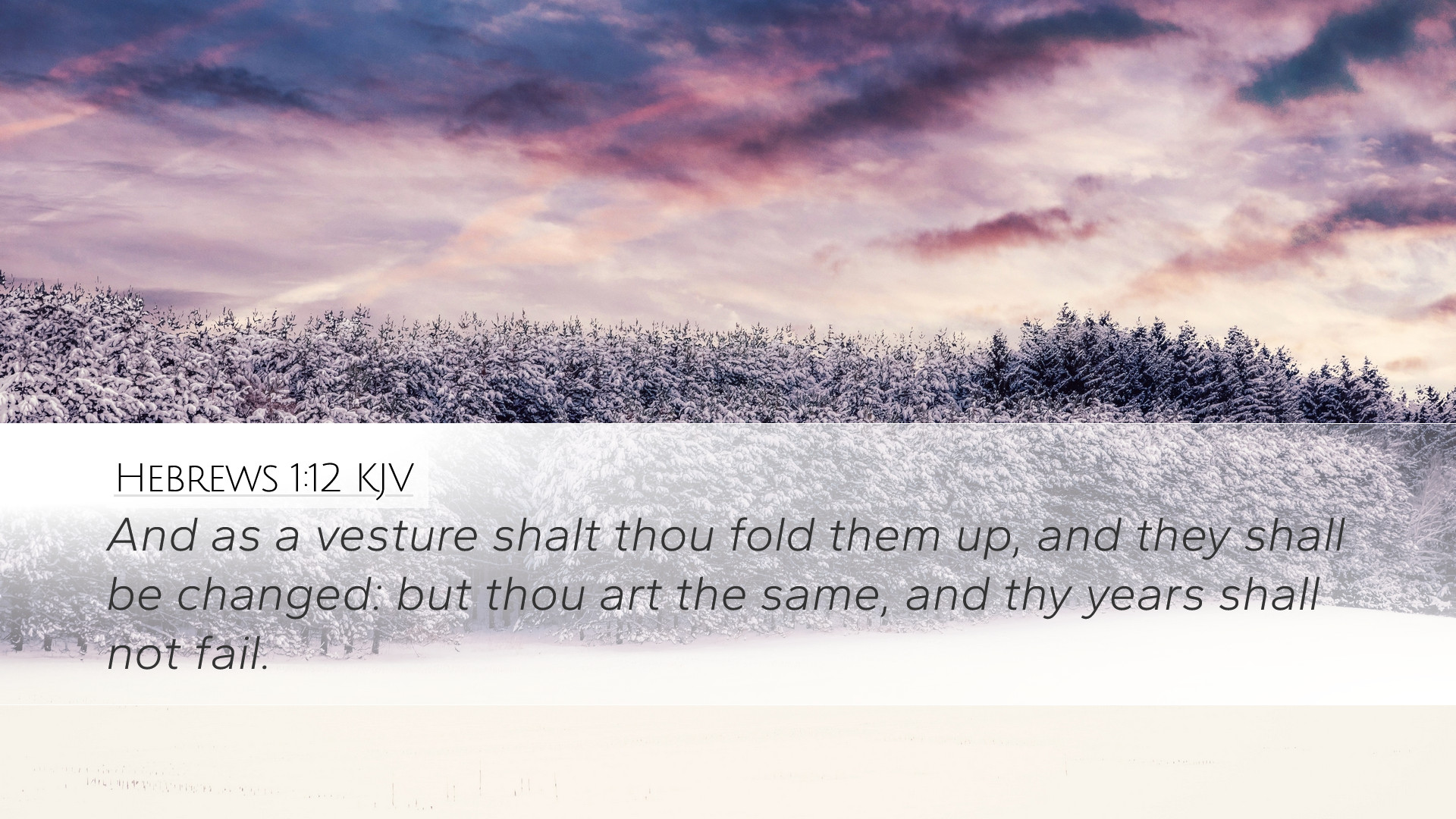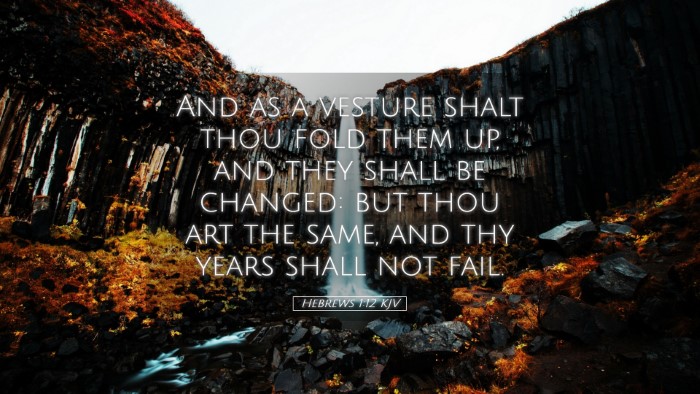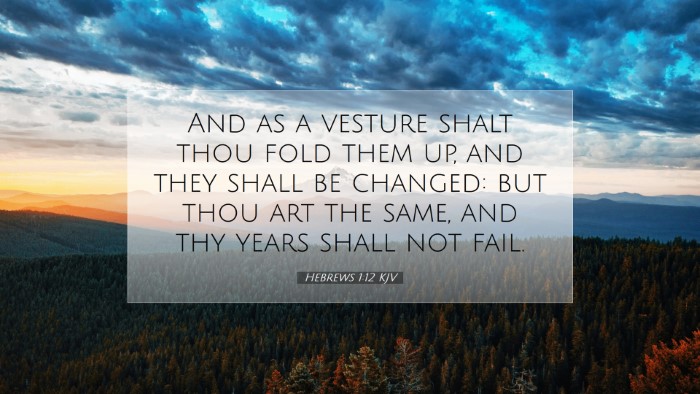Old Testament
Genesis Exodus Leviticus Numbers Deuteronomy Joshua Judges Ruth 1 Samuel 2 Samuel 1 Kings 2 Kings 1 Chronicles 2 Chronicles Ezra Nehemiah Esther Job Psalms Proverbs Ecclesiastes Song of Solomon Isaiah Jeremiah Lamentations Ezekiel Daniel Hosea Joel Amos Obadiah Jonah Micah Nahum Habakkuk Zephaniah Haggai Zechariah MalachiHebrews 1:12
Hebrews 1:12 KJV
And as a vesture shalt thou fold them up, and they shall be changed: but thou art the same, and thy years shall not fail.
Hebrews 1:12 Bible Commentary
Commentary on Hebrews 1:12
Verse: "And as a vesture shalt thou fold them up, and they shall be changed: but thou art the same, and thy years shall not fail."
Introduction
This verse encapsulates a profound theological truth regarding the nature of Christ in contrast with creation. The author of Hebrews emphasizes the permanence of Christ amidst the transitory nature of the created order. Utilizing the imagery of clothing being folded, this passage draws attention to themes of change, continuity, and divine authority.
Commentary Insights
-
Matthew Henry's Analysis:
Matthew Henry highlights the contrast between the mutable creation and the immutable nature of Christ. He explains that just as garments wear out and are replaced, so too will the heavens and the earth be changed. Henry emphasizes that while everything around us is subject to decay and transformation, Christ remains constant, providing comfort and assurance to believers. He interprets this verse as a declaration of God's sovereignty over creation, showcasing that God's promise and purpose endure unchanged.
-
Albert Barnes' Perspective:
Albert Barnes provides a detailed examination of the phrase "as a vesture." He explains the imagery signifies the temporary nature of the heavens and the earth, which will be ultimately transformed or renewed. Barnes asserts that the apostle's intent is to communicate the idea that Christ possesses an eternal nature in stark contrast to the impermanence of the physical universe. He notes that this assurance of Christ's constancy serves as an important foundation for the believer's faith, reinforcing the doctrine of Christ's eternal priesthood.
-
Adam Clarke's Contribution:
Adam Clarke dives into the original Greek terms used in this verse, illuminating their implications. He explains that "to fold up" denotes an action that may suggest both the end of one phase and the preparation for a new one. Clarke draws attention to the theological significance of God's unchanging nature, which is pivotal for understanding God's covenant and promises. He encourages readers to reflect on the implications of Christ's constancy for both temporal and eternal life, underscoring how believers are secure in the relationship with an unchanging God.
Theological Implications
The theological weight of Hebrews 1:12 contributes to various doctrinal understandings:
-
The Doctrine of Immutability:
The unchanging nature of God is a cornerstone of Christian theology. This verse affirms that while creation may undergo transformation, God remains immutable. It reassures believers that amidst life’s uncertainties, they can trust in the steadfastness of God’s character and promises.
-
Christ's Divinity:
The assertion of Christ's constancy in contrast to creation underscores His divine nature. This aligns with the broader narrative of Hebrews, which emphasizes Christ’s supremacy and eternal priesthood. Recognizing Christ as the same throughout eternity bolsters the doctrine of His deity and advocates for His lordship over all temporal matters.
-
Encouragement for Believers:
Hebrews 1:12 serves to encourage believers in their faith journey. When faced with change, uncertainty, or the trials of life, this verse acts as a reminder of the reliability of Christ. Pastors and theologians can use this verse to cultivate a sense of hope within congregations by emphasizing that they serve a Savior who does not change.
Conclusion
Hebrews 1:12 presents a rich tapestry of theological truth. By juxtaposing the ephemeral nature of creation with the eternal nature of Christ, the verse provides insightful commentary on the assurance that believers have in their Savior. For pastors, students, theologians, and Bible scholars, this passage serves as a vital reminder of the character of God and the faithful constancy of Christ amidst a world of change.


